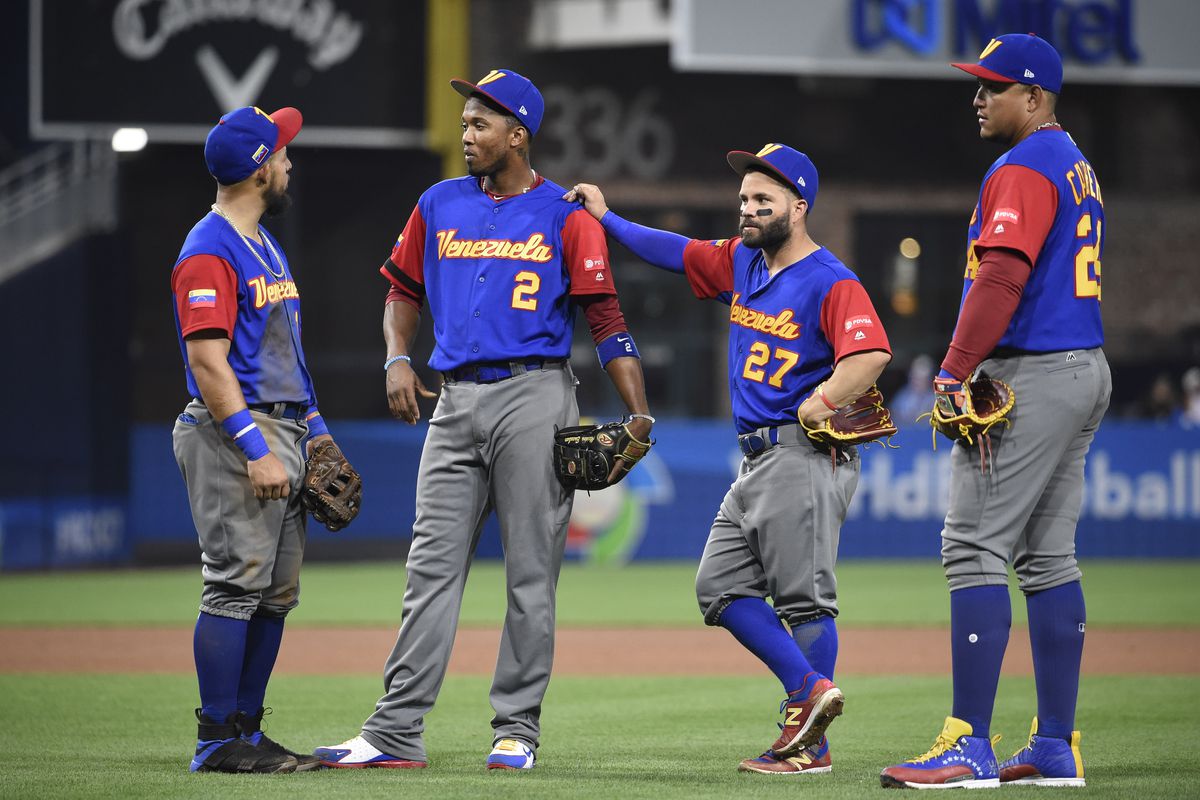Major League Baseball has banned its players and those on affiliated clubs from playing in Venezuela during the offseason as part of an effort to comply with economic sanctions against the country.

The move comes after a recent executive order by President Donald Trump, who has placed sanctions on the Venezuelan government led by President Nicolas Maduro.
Venezuelan Winter League Attracts MLB Talent
The ban will impact players who participate in the Venezuelan Winter League, which dozens of MLB players and hundreds of minor leaguers travel to play in each year during the offseason.
“MLB has been in contact with the relevant government agencies regarding the Executive Order issued by President Trump on Venezuela,†Major League Baseball said in a statement. “MLB will fully adhere to the policies implemented by our government. With respect to the Venezuela Winter League, MLB will suspend its involvement in that league until it receives direction from the relevant agencies that participation by affiliated players is consistent with the Executive Order.â€
The ban was put into place because of fears that the Liga Venezolana de Beisbol Profesional (LVBP) could be seen as a government-run organization, as it is sponsored by Petroleos de Venezuela, S.A. (PDVSA), a state-run oil company. Under the recent executive order, companies and individuals are barred from doing business with the Venezuelan government.
Venezuelan players will still be allowed to return home during the offseason, according to a report by the Wall Street Journal. Nearly 100 players from Venezuela have appeared on MLB rosters this season, including stars like Jose Altuve and Ronald Acuna.
MLB Teams Fear Retaliation
While Venezuela remains a pipeline of talent for major league franchises, the worsening political and economic situation in the country has meant that much of the scouting and development of players takes place outside the country. One popular destination for top Venezuelan talent is the Dominican Republic, with ESPN reporting that young, talented players often move there from Venezuela in hopes of getting signed by an MLB team.
It’s possible that the situation could resolve itself by the time the offseason arrives, preventing any issues from arising. Talks are ongoing between the United States and Venezuela, and MLB could receive guidance from the US government that suggests players would not be in violation of sanctions by playing.
On the other hand, ESPN quoted sources as worrying that Maduro could potentially retaliate against MLB. The most likely way of doing this would be by banning MLB teams from signing amateur Venezuelan talent. At the moment, teams don’t believe that such signings violate the US sanctions, as those agreements are with individual players rather than any governmental organization.
This isn’t the first time that a decision by the Trump administration has impacted relations between MLB and a foreign country. In April, the administration cancelled a deal between MLB and the Cuban Baseball Federation that would have provided a path to the major leagues for Cuban player that eliminated the dangers of defecting to the United States. However, the US government nixed the idea, saying that “a payment to the Cuban Baseball Federation is a payment to the Cuban government.â€











